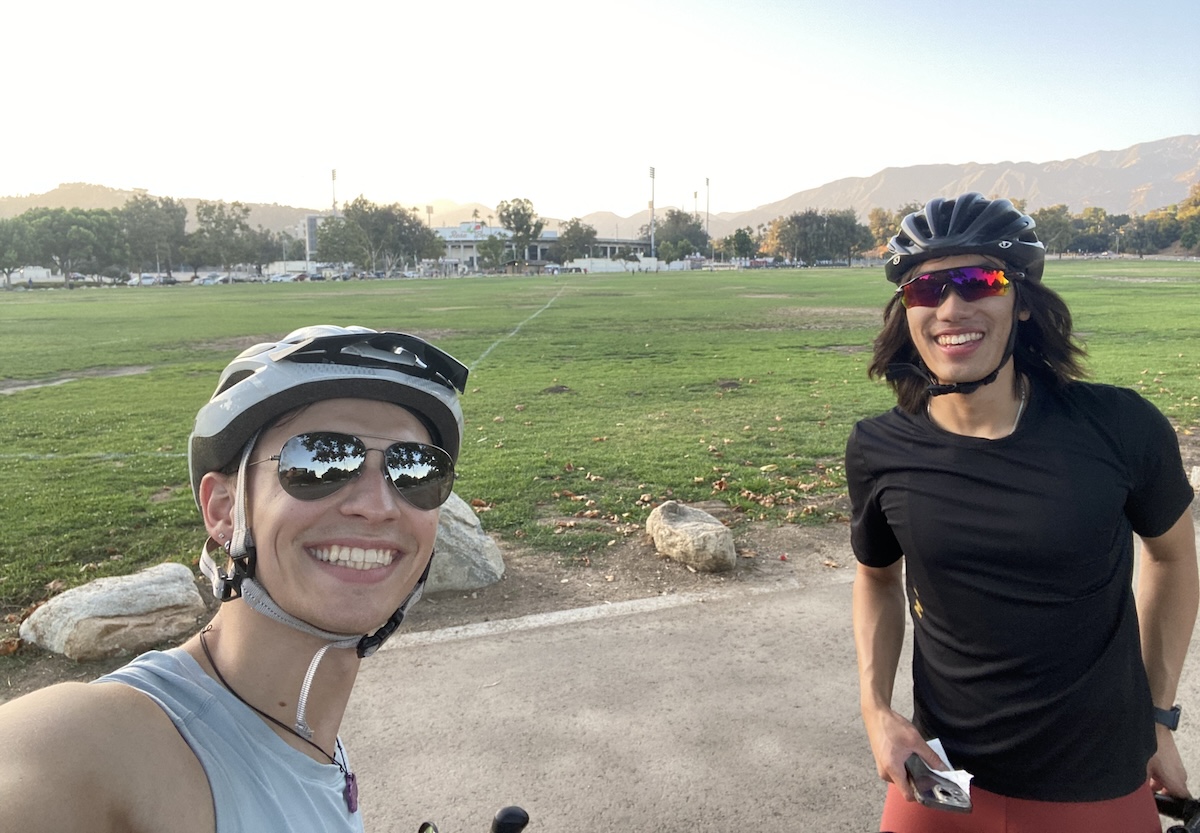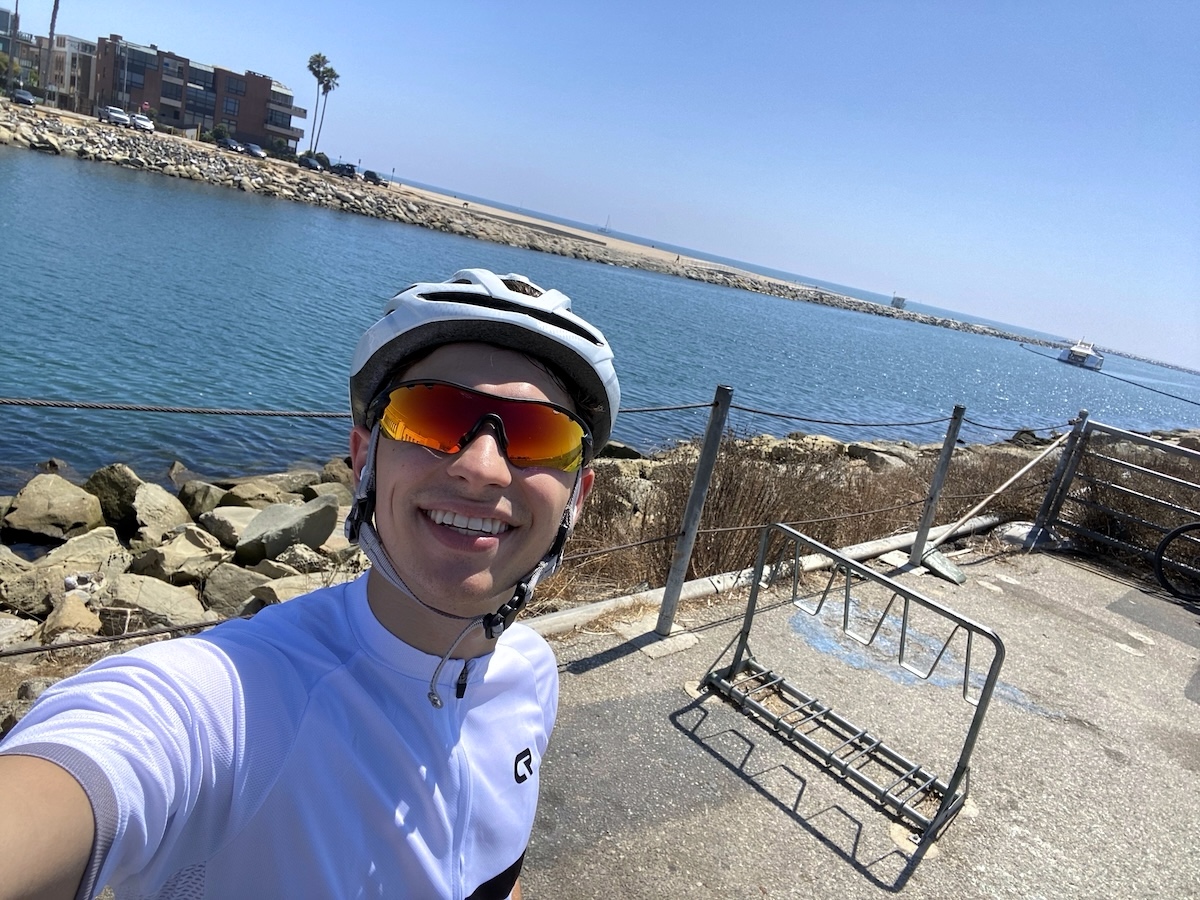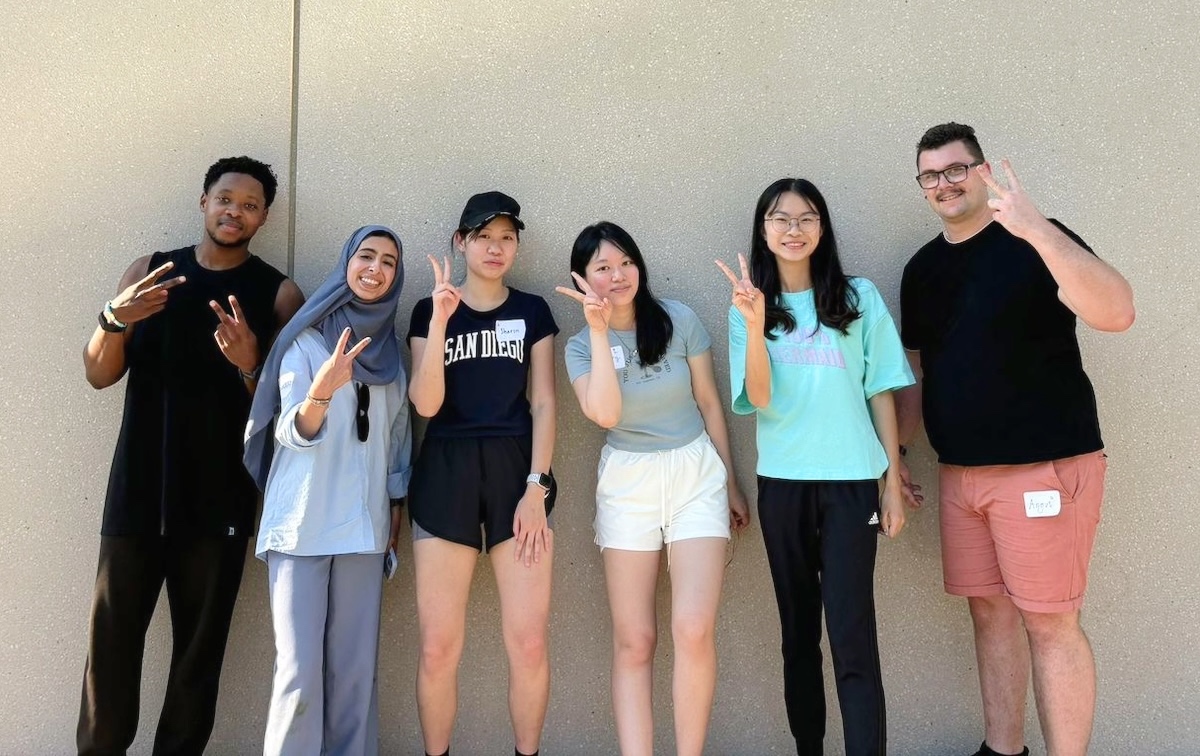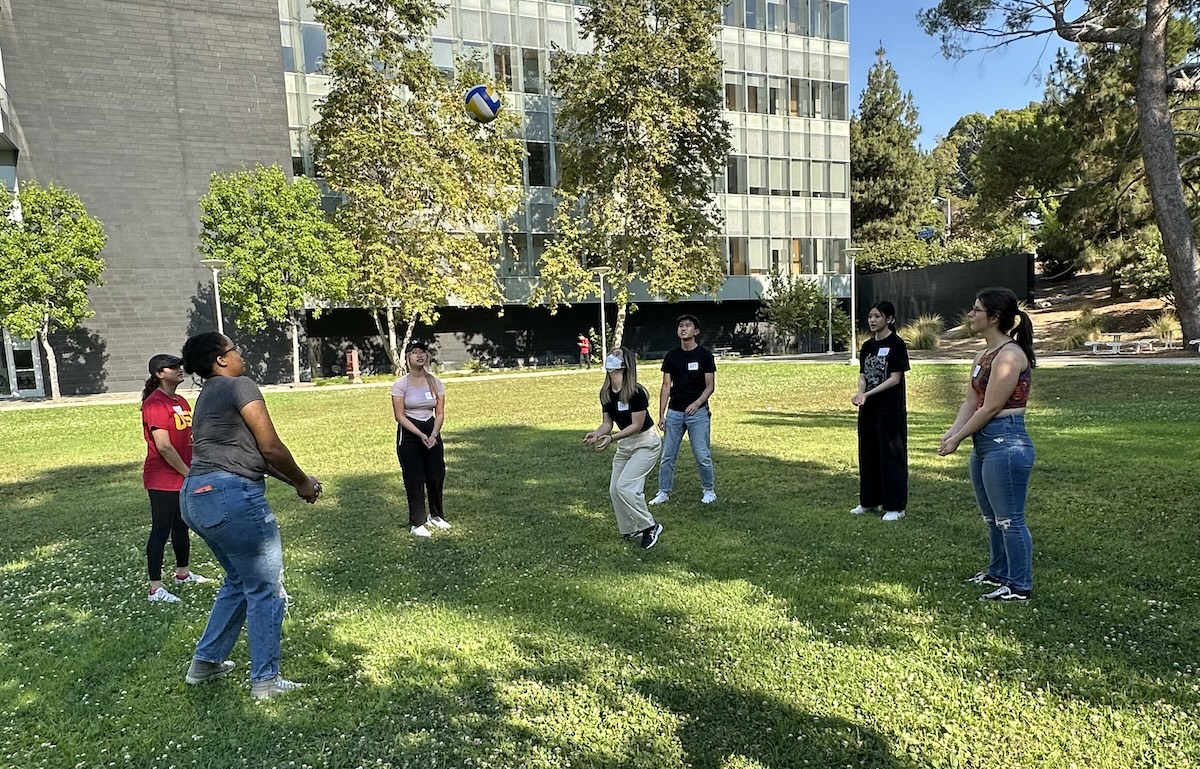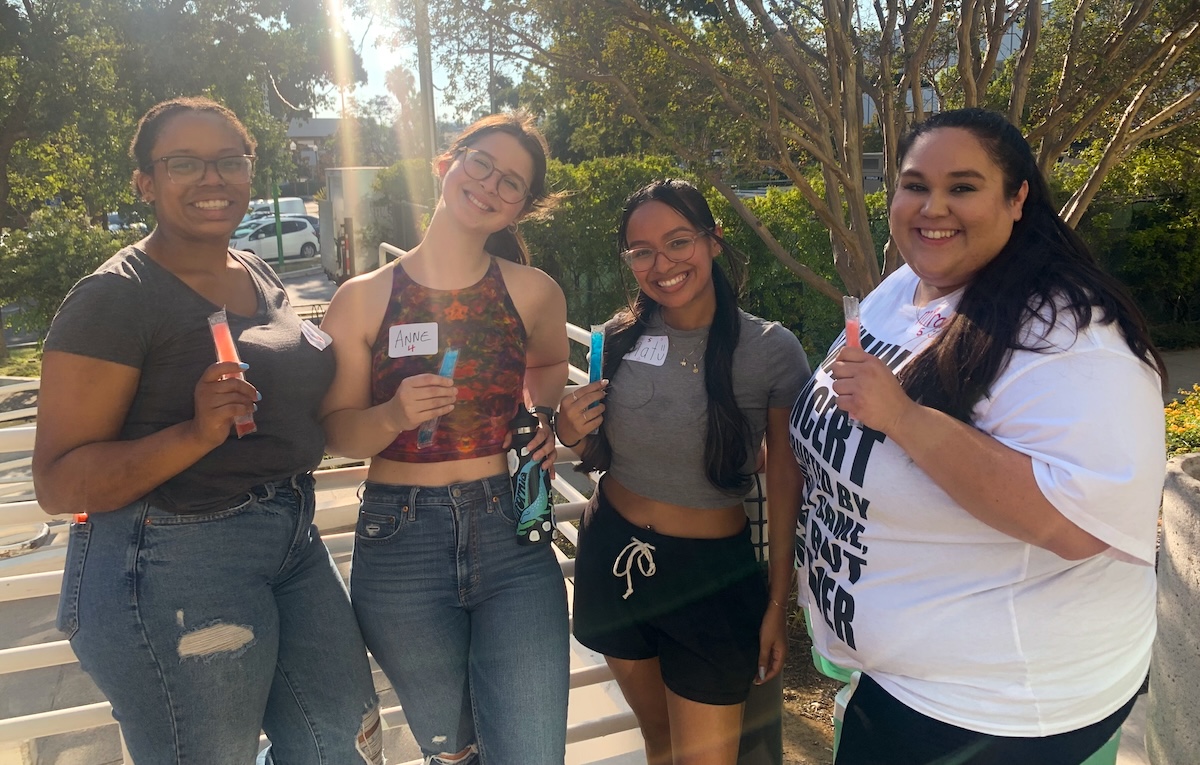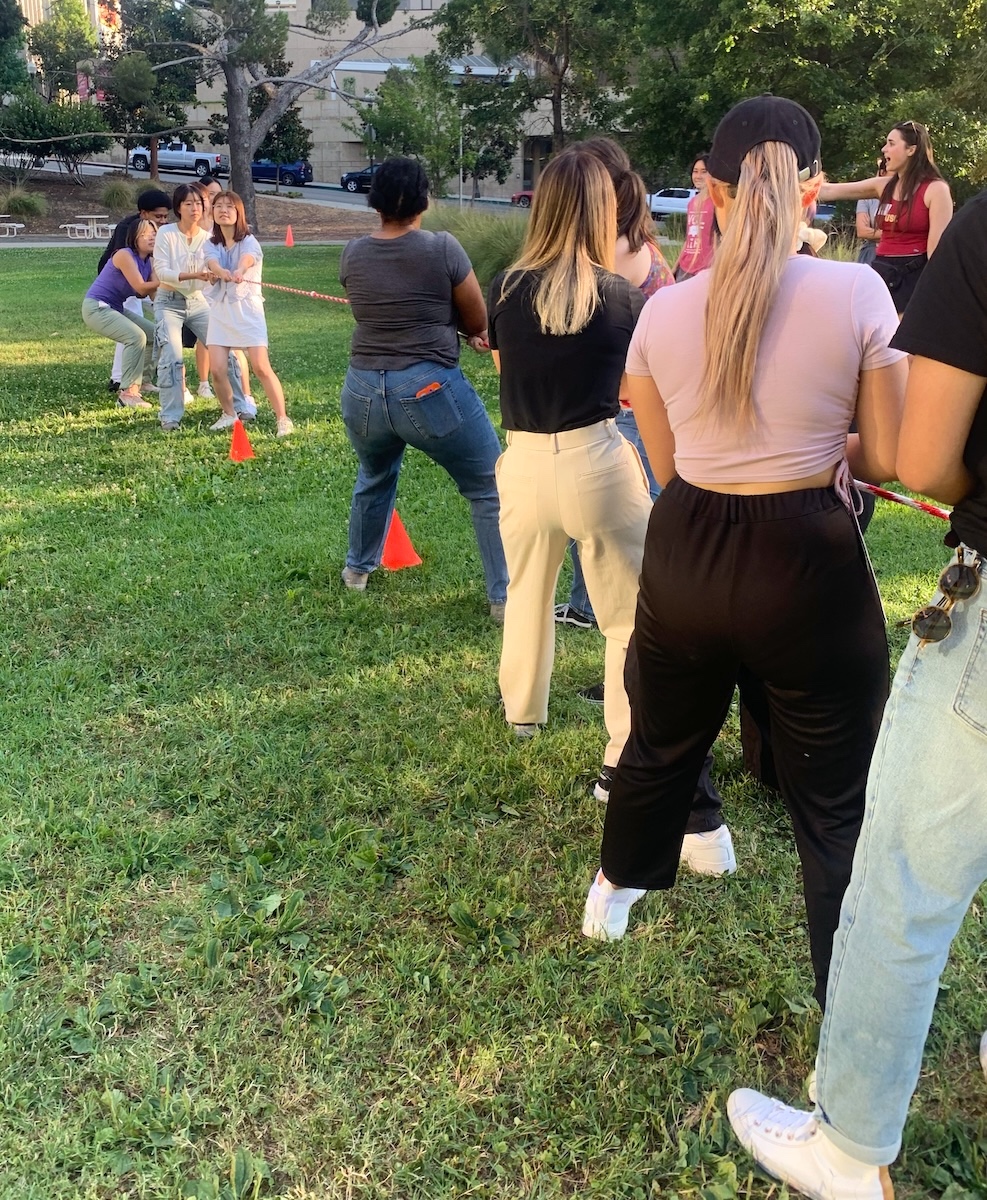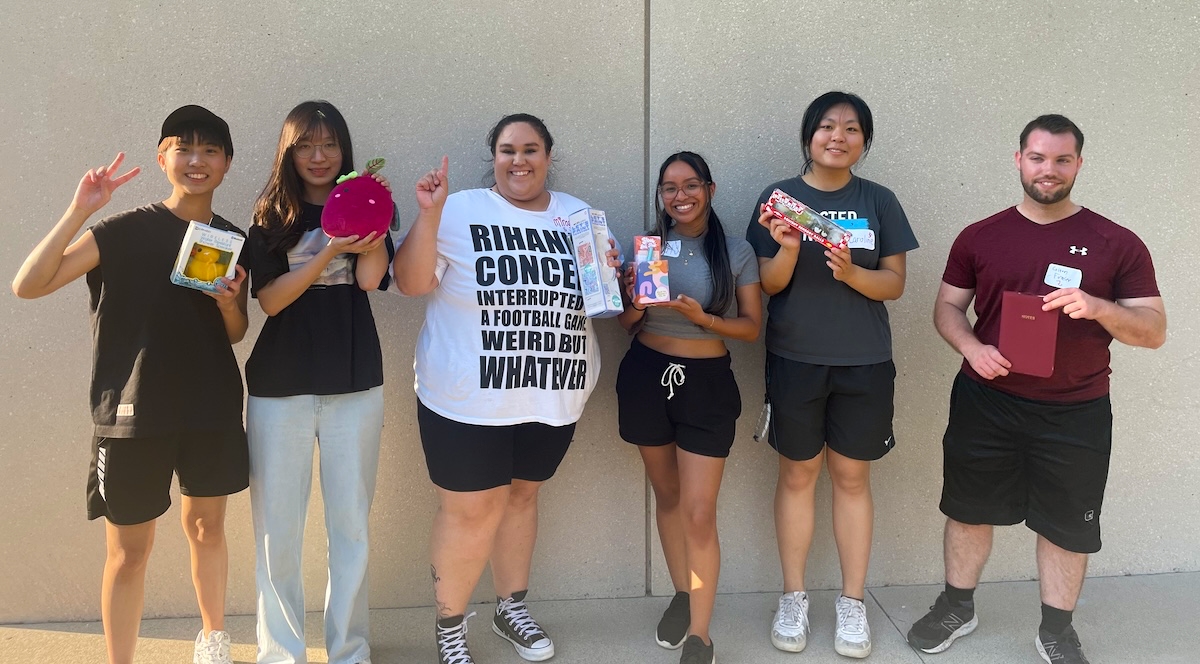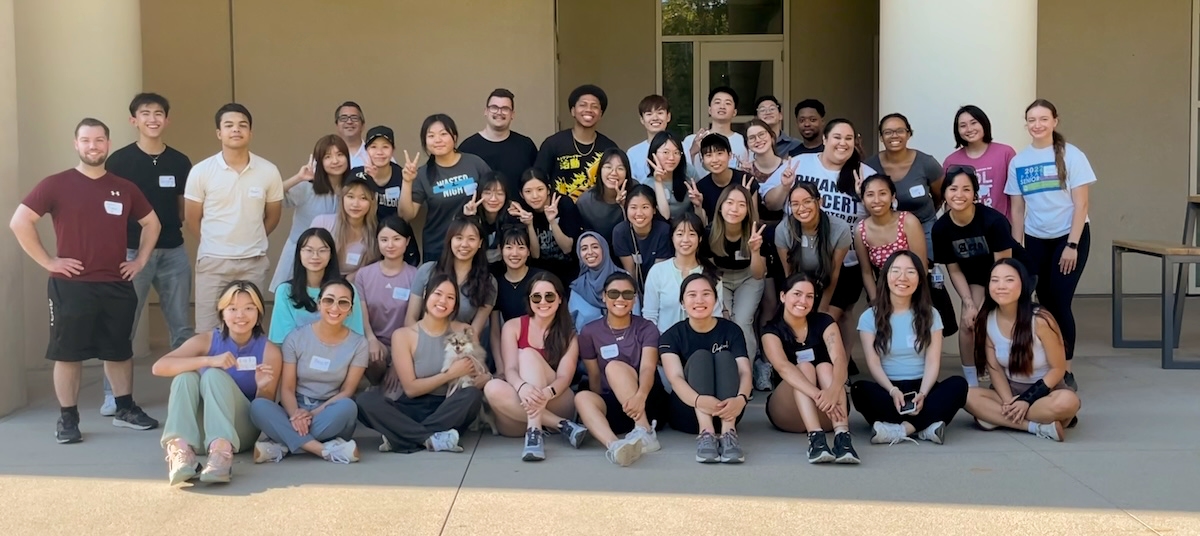Student Blog
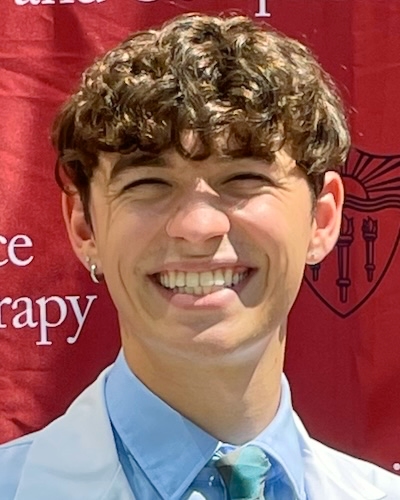
My First Summer Semester, What a Ride! ⟩
August 22, 2024, by Mason
Living in LA School/Life Balance
Completing finals this past week marks the end of my first-ever summer semester in college, and I can confidently say that it was not the experience I expected. Now let me be honest with you all, when I first found out that I would have to take classes for the majority of the summer I was not too pleased. The summer had always been my time to let loose amidst busy semesters of OT courses and I was scared that the lack of a break would feel overwhelming. My first summer semester also happened to be my first semester as an official graduate student. It was quite an interesting experience having my entire family fly down on a Friday afternoon for the pomp and circumstance of my undergraduate graduation only to then have my first day of class bright and early the next Monday morning. Despite being a full-time student throughout the summer I still ended up having quite an enjoyable experience. For me personally, I always get a certain feeling or mood when the summer comes around. I don’t know if maybe it’s the warmth or the opportunities to get out into the sunshine, but summer always brings me a feeling of joy and endless possibilities. Even though I was on my way to class in the morning, I couldn’t help but smile in the sunshine, sunglasses donned, and iced coffee in hand.
For me, I took my summer semester as an awesome opportunity to explore a new season in Los Angeles for the very first time. I chose to embrace being a California college student and had a great time while doing it. Initially, I thought having class would take away from my opportunities to engage in the activities I enjoyed, yet I found quite the opposite happening this summer. In fact, I was actually able to explore and try many new things I never expected. One of these activities was biking. I have always loved biking, but I have also always wanted to take the activity from simple fun to a serious sport I could enjoy. This summer presented me with the awesome opportunity to do that. I explored new areas of LA I had never experienced like scenic coastal roadways, surprisingly lush river canal trails, and open northern landscapes. I was even able to create and develop new meaningful relationships and friendships with my classmates who shared my passion for the activity.
OT school can certainly have its ups and downs, and there are definitely some overwhelming moments, but for me what gets me through it is making the time for all the things I enjoy. Balancing the workload and making time for other meaningful occupations can take time. It is an intricate dance that only experience can teach you to master. But once you get in the swing of each semester, you’ll find all of your responsibilities get gradually easier to manage. Our meaningful activities are what drive us as passionate and independent individuals. They are the reason we get up each morning, and they are the reason I continue to work hard towards my dream of becoming a clinician. My biggest piece of advice for anyone looking to join our OT program or any other program like it is to make time for the little things that bring you joy. I strongly believe that when you do you will concentrate better, learn better, and grow as a person throughout your time here.
That’s all for now and Fight On!
⋯
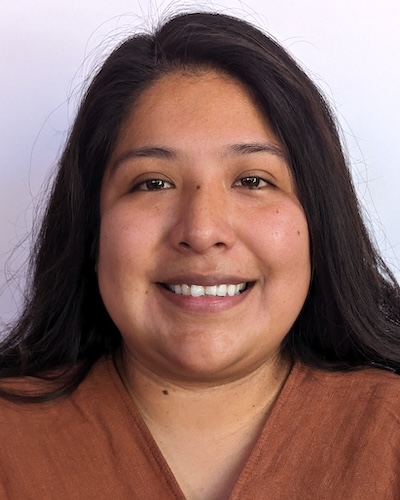
From Rejection to Redemption: My Second Attempt ⟩
August 15, 2024, by Patricia
Getting rejected the first time creates some type of feeling. For me it was sadness, questioning what went wrong, and thinking about what to do differently applying a second time around. Here are some of the areas I revisited and hope it helps you if you are applying a second time:
Meet with an Admissions Representative:
Set up an appointment to meet with an admissions representative, it truly makes a difference. Ask them questions about your application like, “what can I do to strengthen my application?” I had the opportunity to know what disqualified my application, and that was that one of my prerequisites was passed the seven years when I applied. If you have a question about your prerequisites or want to request a waiver you can do so by visiting this link: https://chan.usc.edu/education/entry-level-otd/admissions/prerequisite-inquiry.
Letters of Recommendation:
Asking for a letter of recommendation from people that don’t know about occupational therapy can be a little challenging. I composed and provided a brief written description of “What is occupational therapy (OT)?”, a list of attributes an occupational therapist has, and why I was interested in occupational therapy to the people I was asking for letters of recommendation from. This can help the individuals writing your letters of recommendation know and learn about OT and how your skills and work experience relate to OT. Also, give them a due date and do check-ins with them as the application window comes to an end.
Personal Statement and Other Prompts:
Writing the personal statement along with the other program prompts for me was an opportunity to reflect on why I was applying for OT. It was a time of vulnerability in sharing my story and I felt nervous when I asked them to read my statements. And with that said, I do recommend asking people that you feel comfortable with to read your personal statement. Also, if you need to redo your personal statement that’s okay. I redid my personal statement three times before I felt true and confident in my written statements and this wouldn’t have happened if I didn’t share them and receive feedback. Lastly, if you don’t know where or how to start writing, I would suggest writing down all your thoughts and experiences to give you a guide on what you want to talk/write about.
These are the three areas I focused the most on when applying a second time around to OT programs. Whether this is your first or second time applying, I hope these suggestions help. If you have any questions or would like to contact me, please reach out. I wish you the best in your application process and as always, Fight On!
⋯
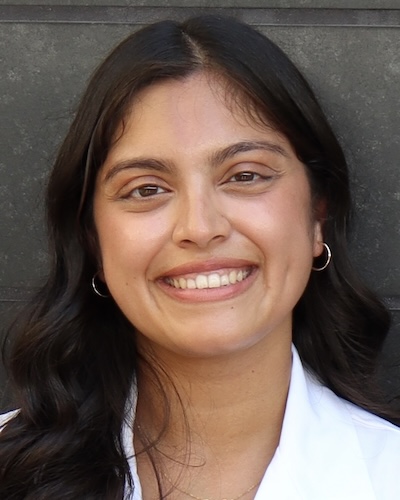
A Day in the Life of an E-OTD Student Vlog ⟩
August 6, 2024, by Shivani
Ever wonder what it’s like to be an E-OTD student at USC Chan? Well, I’m here to show you!
Prior to starting grad school, I was a nervous wreck because I didn’t know what was in store for me. However, over time, I was able to realize that I have the ability to shape my grad school experience. Being a part of the USC Chan Trojan Family has been such a rewarding experience thus far, as it has taught me that being a student doesn’t need to consume my entire experience. Grad school is also the time to discover who you are and make memories that will last a lifetime.
I hope my short vlog is able to show you the lighthearted, fun, and exciting aspects of grad school! My journey has transformed from initial uncertainty to a fulfilling and balanced experience, and I’m so excited to share it with you. Thanks for watching and being a part of my grad school journey, and as always, Fight On!
⋯
The Summer Olympics at USC Chan ⟩
August 2, 2024, by Global Initiatives Team
By Alyssa Dharmawan (E-OTD ’26)
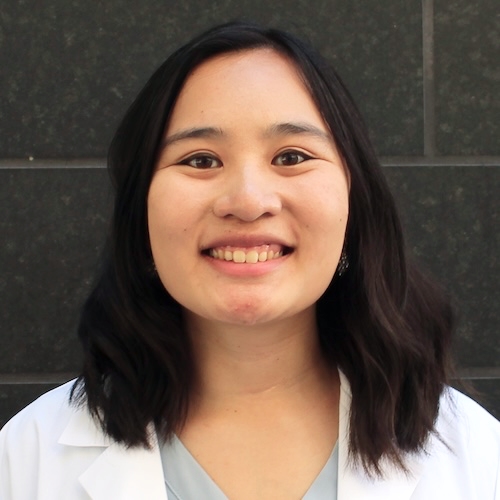
Alyssa Dharmawan
In the world of sports, the Summer Olympics represents a culmination of athletic skill, global unity, and cultural celebrations. Athletes from around the world compete in a diverse range of sports and foster a sense of global community, with the pursuit of excellence and sportsmanship. On July 8th, 2024, Global Initiatives and the Occupational Therapy and Science Council (OTSC) hosted a Summer Olympics event, where students from USC Chan and international OT students from the Summer Occupational Therapy Immersion (SOTI) Program came together and played summer-themed games. Teams were randomized to mix SOTI and Chan students, in order to foster camaraderie among the two groups.
From July 1–31, the 2024 Summer Occupational Therapy Immersion program welcomed 66 OT students and practitioners from 22 different countries across 5 continents. During this 4 week summer program, participants learn about occupational therapy and occupational science in the United States through lectures, site visits, and small group discussions while building global connections and meaningful relationships.
Serving as the Co-Chair for OTSC and working in the Global Initiatives office inspired me to form a committee to create a fun summer event for the USC Chan students and SOTI participants. OTSC’s E-OTD Representative, Catherine Picard, shares how the inspiration of the Summer Olympics contributed to its success: “The inspiration for creating the Summer Olympics stemmed from a desire to foster connections and camaraderie among Chan students from different cohorts, and partnering with Global Initiatives made it a natural choice to include SOTI students, providing a unique opportunity for everyone to socialize and have fun together. Creating a sense of community is integral to USC Chan’s mission, and the Summer Olympics offered a platform for friendly competition, shared experiences, and lasting connections.”
At the beginning of the event, all participants were divided into 5 teams, with each group coming up with a team name, such as Champions, Moho Madness, Pikachu, 4 the Win!, and Gimme 5!. Soon afterwards, teams rotated to play a variety of games such as water balloon tosses, ring toss, dodgeball, corn hole, and volleyball rallies.
Team MOHO Madness: Jowy Cenat, E-OTD ’26; Nourah Alflayyeh, Saudi Arabia; Tsz Ying (Sharon) Li, Hong Kong; Christy Yi, Hong Kong; Kelly Chang, Macau; and Angus Hoadley, Australia
The games ensured that all members of different skill levels and abilities could participate and have an opportunity to engage with their team members. Wing Gi (Venus) Leung, a SOTI participant from Hong Kong, shares her experience: “The Summer Olympics [was] fun [to] play sports without competing too much. Being a person who [isn’t] really into sports, my teammates actively involved me.”
Out of all the games played at the Summer Olympics, volleyball was the most popular. Crispin Huang, a SOTI participant from Hong Kong shares: “[V]olleyball was my favorite game. It was fun to keep the volleyball in the air without letting it touch the ground, despite the sun constantly shining into our eyes. It was both thrilling and hilarious — each time the ball wobbled in the air, my heart raced as I kept shouting to my teammates, ‘Just hit it high so the others have time to react!’ I couldn’t help but laugh at the near-misses and the countless fumbles. It was, of course, a very inclusive game, as it required participation from all team members, no matter our experience in volleyball. In the end, we managed to keep the ball in the air for over 23 hits, which, in my opinion, is quite a milestone as it was the first time for the majority of us to touch a volleyball.”
After teams completed each game, everyone was treated with OTterPops and had an opportunity to socialize and engage in more games, until the final game of the Summer Olympics: Tug of War. During the last game of tug of war, teams went head-to-head tournament style to see who would be the last team standing. The winners of the final game of Tug of War were awarded team prizes!
Megan Mills E-OTD ’26, Anne Kenney E-OTD ’26, Natalie Sanchez E-OTD ’26, and Miranda Marquez E-OTD ’26 enjoying OTterpops
It all came down to two teams: Champions and Gimme 5! The big question was which team would be crowned the winner of the Tug of War and take home the grand prizes? After an exhilarating match, Gimme 5! emerged as the winners, demonstrating amazing teamwork and strategy to come on top.
Winners of the Summer Olympics Tug of War team Gimme 5! Wing Sum (Kewpie) Chor, Hong Kong; Miranda Marquez, E-OTD ’26; Natalie Sanchez, E-OTD ’26; Weng U (Caroline) Chan, Macau; and Colton Fraser E-OTD ’26 with their prizes
After a fun-filled afternoon of games and socializing under the bright sun, the participants reflected on their experience participating in the Summer Olympics and fostering connections:
“I love [that] this event lets us interact with USC students by playing games. I particularly love tug of war because it gives off a team building atmosphere. When we work together it is easier to get closer with each other. I was impressed by the variety of games such as volleyball and water balloon tosses. [Overall] I love the event a lot.”
— Caroline Chan, Macau
“[The Summer Olympics] was a really fun way to get to know USC OT students! They were all so energetic and lovely. Plus it was nice to see how good friends you all were with each other as well.”
— Nourah Alflayyeh, Saudi Arabia
“[The Summer Olympics] was a lot of fun, I got to meet a lot of new people not only from the SOTI program, but also people from different cohorts from USC Chan. It was a great time playing games and trying to come up with strategies to win. My team got to know each other fast and recognized each other’s strengths and used that to our advantage. Just the overall team work and coming together was awesome! I loved how we were just cheering and rooting for each other the entire event. We all got so close and even exchanged contact info at the end to keep in touch.”
— Miranda Marquez, E-OTD ’26
Serving as the Co-Chair for OTSC and working in Global Initiatives places me in a unique position to foster relationships within the USC Chan community and build global connections with the SOTI participants. I am so honored to have an opportunity to build a sense of community locally and internationally through a shared love of the game with this event. The Summer Olympics would have not been possible without the hardwork and dedication from the incredible team of students from Global Initiatives and OTSC’s executive board members as well as the support of Dr. Danny Park. A special thank you goes to Bea Gee, Anna Glenn, Annika Pham, Catherine Picard, Keni Tsuno, Xiaorong Wang and Jackie Villa.
⋯
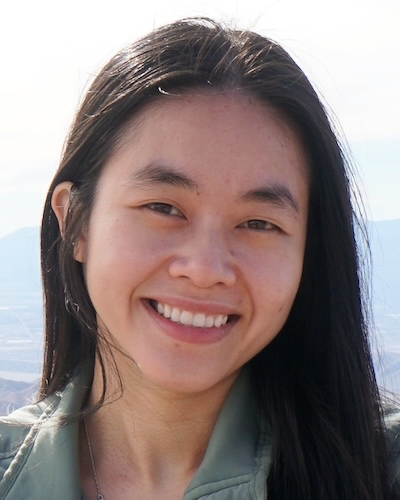
Get Your Money’s Worth! ⟩
July 22, 2024, by Dana
After spending a GOOD amount for tuition, you should make your money worth it! Here’s my guide on what and how to claim free/discounted benefits at USC:
Lyft Rides Program: As USC students, we are provided with free Lyft rides after 5PM at the HSC campus (after 6PM for UPC) until 2AM seven days a week within specific boundaries of the area. This is so useful when you have late night food runs with friends or going home from studying at the library. After filling out a request form, the transportation team will email you an activation code, in which you will need to be signed in with your USC email on the Lyft app. After that, all your rides after 5PM will be free of charge! Here’s the website for more info: https://transnet.usc.edu/index.php/how-to-use-lyft/
LA Metro U-Pass: If you’re new to LA or don’t have access to a car, USC offers free public transportation around LA with the U-Pass! The U-Pass allows USC students unlimited rides on LA Metro’s rail and bus lines for any given semester using a tap card. The card can also be used around other LA cities such as Culver City, Norwalk, Torrance, Gardena, Long Beach, and Foothill. Because of this card, I went from my place in Monterey Park to the KIA Forum for a K-Pop concert without the stress of driving and parking fees. It is also great for exploring the city, such as taking the rails to Hollywood or Santa Monica Pier. You can purchase the card (free of charge) through the Transportation Purchase Portal, complete a Metro survey, and then the USC transportation survey. Once you’ve completed all the steps, you will be able to pick up your tap card at the transportation office and tap at any metro station for your next ride! Here’s the website for more in-depth info and steps: https://transnet.usc.edu/index.php/student-u-pass/
Discounts to Theme Parks and Zoos: USC offers various discounts to the following theme parks and zoos across SoCal: Six Flags Magic Mountain, Knott’s Berry Farm, Universal Studios Hollywood, Legoland, Aquarium of the Pacific, Los Angeles Zoo, San Diego Zoo. Some tickets can only be purchased online or in person at the USC Ticket Office on the University Park Campus at Galen Center or the One Stop at HSC on the Health Sciences Campus. I was able to use my USC email to get discounts for Universal Studios and the Aquarium of the Pacific, and it was much more enjoyable knowing that I didn’t pay full prices on those tickets. Here’s the website to check prices and activate your discounts: https://ticketoffice.usc.edu/for-the-usc-community/attractions-and-entertainment/theme-parks-and-zoos/
USC Visions and Voices: One of my biggest flexes while attending USC was that I got to watch Saweetie, Quavo, and the Migos perform LIVE over at the UPC campus. With USC Visions and Voices, they have events such as free concerts and performances throughout the school year for students to attend and enjoy. At the beginning of the school year, they host a huge event with performances to welcome students back from the summer and kick off the school year with fun activities! To keep up with their events, follow them on Instagram @uscvandv or watch out for updates in your email!
On-Campus Gyms: As part of USC Student Life, we have free membership to the gyms on the UPC (Lyon Recreation Center and USC Village Fitness Center) and HSC (HSC Fitness Center) campuses. As long as you are enrolled in at least 1 unit during the school year, you have access to any of the centers. When you enter any one of the centers for the first time, you can let them know you want to activate your membership and they will guide you through filling out a short form to access the gym. You only need to do that once and then can enter any of the centers through the swipe of your USC ID card.
Microsoft Office 365: If you’re more of a Microsoft person rather than Google Docs, you have access to all Microsoft apps when you sign into your USC account! I personally use Microsoft to organize all my files for classes and complete assignments through there. Go to the Microsoft website and sign in using your USC email, and then it will automatically redirect to the USC NetID login screen. Log in using your USC NetID username and password. And that’s it! You have exclusive access to Microsoft!
Subscriptions to LA and NY Times: USC offers a whole year of subscription to the LA and NY Times for USC graduate students! To claim the NY Times subscription you need to fill out a form (https://docs.google.com/forms/d/e/1FAIpQLSdrnNNe9ysQmLo0KW856zvcT-vNsAk2aR-aHP0oqrRS00xqXA/viewform) with your USC email and ID to get a code. For LA Times, you just need to sign up with your USC email after clicking the link in your MyUSC login (https://my.usc.edu/los-angeles-times/) .
Random Events on Campus! READ YOUR EMAILS! I can’t preface that enough because the amount of times my friends and I were able to get free food and goodies from the events around HSC/UPC were crazy! Some random events I went to were free food trucks on Election Day hosted by Graduate Student Government, destressing with therapy dogs on campus with complimentary donuts and coffee, free agua frescas and flower planting with Norris Medical Library, and so much more!! So please read all your emails as the student support team sends weekly emails about events around HSC, as well as in our division!
⋯






